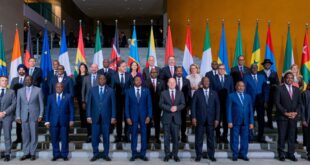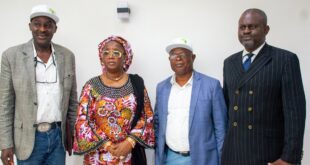The United States Chamber of Commerce and the Bloomberg Philanthropies co-hosted the US-Africa Business Forum in New York on 21 September. The forum played host to African business and political leaders and their American counterparts.
Development in Africa is really shaping up, as more trade partnerships are being made with several global investors and stakeholders towards evolving the continent’s image, rather than just receiving short-term relief donations and aid.
President Barack Obama said at the forum that during his travels to Africa, “from Senegal to South Africa, Africans insist they do not just want aid, they want trade. They want partners, not patrons.”
Africa currently hosts eleven out of twenty of the world’s fastest growing economies. The prospects for Africa’s growth remain untapped and therefore needs the support of global bodies to unlock it. Michael Bloomberg said, “African markets hold many untapped opportunities for U.S. investors and companies – and capitalizing on them would create jobs and improve lives on both sides of the Atlantic.”
Africa has seen increased partnerships with United States organisations. In 2012, Blackstone Group and Aliko Dangote struck a $5 billion partnership by creating an investment group called Black Rhino. The group’s main aim is investing to improve the power sector in Africa. In 2014, General Electric pledged $2 billion to invest in facility development, skills training, and sustainability initiatives across Africa by 2018.
The United States Chamber of Commerce named Dangote, Africa’s richest businessman, as the co-chair of its US-Africa Business Centre. This shows its commitment to collaboration between the business communities in the United States and Africa. Dangote will serve alongside Jay Ireland, President/CEO of GE Africa.
President Muhammadu Buhari of Nigeria attended the forum. He commended the United States’ relationship with Nigeria. The relationship had led to an increase in Foreign Direct Investments and influx of multinational corporations. He spoke about Nigeria’s progress in improving security within the country. “Hundreds of communities and thousands of people have been liberated from the clutches of the terrorists,” he said.
President Buhari also spoke on his administration’s plans towards boosting industrialisation and infrastructural growth. He commented that “there is the Nigerian Industrial Plan that has come into force. The implementation is directed at interventions to improve productivity and output in five industry groups, namely: agribusiness and agro-allied; solid minerals and metals; oil and gas; construction, and light manufacturing.”
The president urged American businesses to take advantage of the investment opportunity that Nigeria represents, stating that “Nigeria welcomes you”.
President Ellen Johnson Sirleaf has informed potential investors that attended the US-Africa Business Forum about the need to invest in Liberia’s agriculture sector. President Sirleaf said the agriculture sector is a significant priority for Liberia because it is the sector that holds the future of the country’s economic growth, naming cocoa and oil palm as potential agricultural products for investment.
“We are trying to move away from the extractive industries, which has been the traditional medium for growth, to agriculture,” she said. “Working with the private sector, we will expand on the production of oil palm, cocoa, rubber and others, with value addition as key objectives,” she pointed out.
President Jacob Zuma urged countries to invest in South Africa. He attributed his country’s openness as a success factor. He said, “Investing in South Africa is absolutely the right thing, it is the destination for investment.”
Africa’s stellar growth is fully dependent on African leaders and businesses taking responsibility for the development of the continent. Igor Vayn, Chief Executive Officer, Renaissance Capital said, “But when we talk about investment, we’re talking about domestic investors as well as foreign investors. Foreign investors will come into the country only when they see that the domestic investors are comfortable doing business in their own countries.” // Akinkunmi Akingbade, Ventures Africa
 THE AFRICAN COURIER. Reporting Africa and its Diaspora! The African Courier is an international magazine published in Germany to report on Africa and the Diaspora African experience. The first issue of the bimonthly magazine appeared on the newsstands on 15 February 1998. The African Courier is a communication forum for European-African political, economic and cultural exchanges, and a voice for Africa in Europe.
THE AFRICAN COURIER. Reporting Africa and its Diaspora! The African Courier is an international magazine published in Germany to report on Africa and the Diaspora African experience. The first issue of the bimonthly magazine appeared on the newsstands on 15 February 1998. The African Courier is a communication forum for European-African political, economic and cultural exchanges, and a voice for Africa in Europe.

































